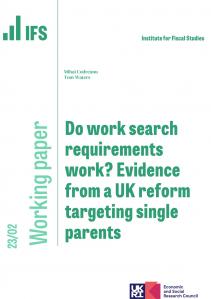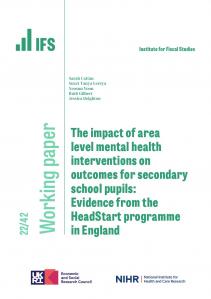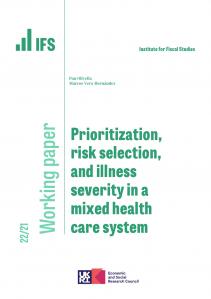Collection
Briefing and analysis
The Chancellor made his Budget statement at 12.30 pm on Wednesday 22nd March 2006.
On Thursday 23rd March, the day following the Budget, the Institute for Fiscal Studies held a lunchtime briefing. A press release is available, and presentations from the briefing can be downloaded here:
- The public finances, Carl Emmerson
- Spending on schools, Alissa Goodman
- Personal tax and benefit reforms, Stuart Adam
Green Budget 2006
The IFS Green Budget 2006 assesses key questions that the Chancellor has to confront in drawing up his 2005 Budget statement. The areas covered are fiscal policy, public spending and the public finances; tax credits; productivity and company taxation; and tax avoidance. Published in collaboration with Morgan Stanley, the Green Budget also discusses the outlook for economic growth and government debt management. These topics and others were covered in our general election analysis last year; we examined Labour's record since 1997 and the proposals in the three largest parties' manifestos.
Public finances
- The projections set out in the December 2005 Pre-Budget Report suggest a relatively strong improvement in the public finances over the medium term. The Treasury expects this improvement to come about for two reasons. The first is strong growth in tax receipts, between this year and next, that is not explained by either new discretionary policy measures or particularly strong economic performance. The second explanation is cuts in public spending as a share of national income over the period to be covered by the summer 2007 Comprehensive Spending Review.
- As discussed in the the January 2006 IFS Green Budget, doubts about these two elements, in particular, of the Treasury's forecasts remain.
- Implications of David Cameron's pledge to share 'the fruits of economic growth between lower taxes and strengthened public services' are discussed in a recent article in Public Finance Magazine.
Inequality and poverty
Recent IFS analysis of the government's data on inequality looked in particular at the government's child poverty target and the possible cost of meeting its future targets. The report examined why child poverty has fallen under Labour, and why it did not fall enough for the child poverty targets for 2004/05 to be met.
It also found that there was slow growth in average living standards, but a rapid fall in pensioner poverty.








